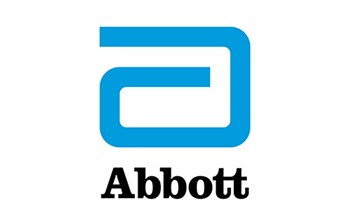The Importance of Pediatric Lipid Testing in the Diagnosis and Treatment of Familial Hypercholesterolemia

Title: The Importance of Pediatric Lipid Testing in the Diagnosis and Treatment of Familial Hypercholesterolemia
Date: Thursday, September 2
Time: 1 p.m. ET
Presenter: Mary McGowan, MD

Learn the Benefits of Early Screening
In this webinar, you’ll learn about the importance of lipid testing in children ages 9 to 11 to identify cases of familial hypercholesterolemia (FH). FH is a common genetic disorder leading to elevated low-density lipoprotein cholesterol (LDL-C) from birth.1 Globally out of 220 children, approximately 1 child has FH, and therefore an increased risk to suffer from early cardiovascular disease, or even early death.1 One in 10 premature myocardialinfarctions is caused by FH.2 Yet 90% of the 1.3 million Americans with FH are unaware of their condition, leading to premature atherosclerotic cardiovascular disease.1,2
The Centers for Disease Control and Prevention defines FH as a Tier 1 genomic application, i.e., having significant potential for positive impact on public health.3 Still implementation of evidenced-based practices for FH screening is suboptimal for many reasons, ranging from lack of FH awareness among both healthcare providers and the public, to the absence of a structured approach to screening, diagnosis, and treatment.4-6
Learning Objectives
This webinar will help you:
- Explain the specific genetics of FH and the benefits of early treatment of hypercholesterolemia associated with this genetic disorder1,9
- Describe the role of cascade screening in the diagnosis of FH1,3,4
- Recognize the barriers to implementing universal pediatric lipid screening4-6,8
- Recognize the value of point-of-care lipid testing in pediatric offices — enabling parents and children to avoid a trip to a laboratory
Watch on Demand Download Slides (PDF, 1.3MB)
This webinar is produced by Whitehat Communications, a provider of continuing education programs in clinical laboratory sciences that has been approved by the ASCLS P.A.C.E.™ Program. One P.A.C.E. credit hour will be provided for this complimentary, basic-level program.
Presenter

Mary McGowan, MD
Dr. Mary McGowan is an Assistant Professor of Medicine at The Geisel School of Medicine at Dartmouth and the Co-Director of the Lipid Clinic at Dartmouth-Hitchcock Heart and Vascular Center. She is also the Chief Medical Officer of The Familial Hypercholesterolemia Foundation and the author of numerous articles and five books. McGowan has been the principal investigator on over 30 national and international clinical trials and has lectured on cholesterol metabolism in the United States, Canada, Europe, and Asia.
References
- McGowan MP, Hosseini Dehkordi SH, Moriarty PM, Duell PB. Diagnosis and Treatment of Heterozygous Familial Hypercholesterolemia. J Am Heart Assoc 2019;8:e013225.
- Singh A, Gupta A, Collins BL, et al. Familial hypercholesterolemia among young adults with myocardial infarction. J Am Coll Cardiol. 2019;73(19):2439-2450.
- CDC. Genomics & Precision Health. Tier 1 Genomic Application Toolkit for Public Health Departments: https://archive.cdc.gov/#/details?url=https://www.cdc.gov/genomics/implementation/toolkit/index.htm accessed January 31, 2021.
- Knowles JW, Rader DJ, Khoury MJ. Cascade Screening for Familial Hypercholesterolemia and the Use of Genetic Testing. JAMA 2017;318:381-382
- Lee C, Rivera-Valerio M, Bangash H, Prokop L, Kullo I. New case detection by cascade testing in familial hypercholesterolemia: A systematic review of the literature. Circ Genom Precis Med. 2019;12:e002723.
- Ferranti SD de et al. Cholesterol Screening and Treatment Practices and Preferences: A Survey of United States Pediatricians. J Pediatr 2017;185:99-105
- Expert Panel on Integrated Guidelines for Cardiovascular Health and Risk Reduction in Children and Adolescents, National Heart, Lung, and Blood Institute. Expert panel on integrated guidelines for cardiovascular health and risk reduction in children and adolescents: summary report. Pediatrics.2011;128(suppl 5):S213-S256
- Dixon DB, Kornblum AP, Ste_en LM, Zhou X, Steinberger J. Implementation of lipid screening guidelines in children by primary pediatric providers. J Pediatr 2014;164:572-.
- Luirink IK, Wiegman A, Kusters DM et al. 20-year follow-up of statins in children with familial hypercholesterolemia. N Engl J Med. 2019;381:1547-56.
- Allen-Tice C, Steinberger J, Murdy K, Zierhut H. Pediatric cholesterol screening practices in 9- to 11-year-olds in a large midwestern primary care setting. Journal of Clinical Lipidology (2020) doi: https://doi.org/10.1016/j.jacl.2020.01.013.
